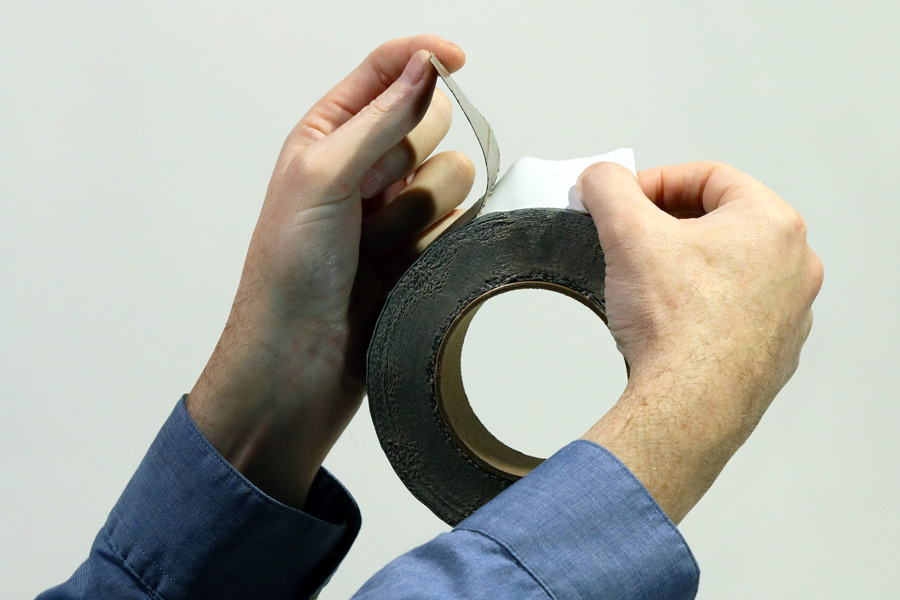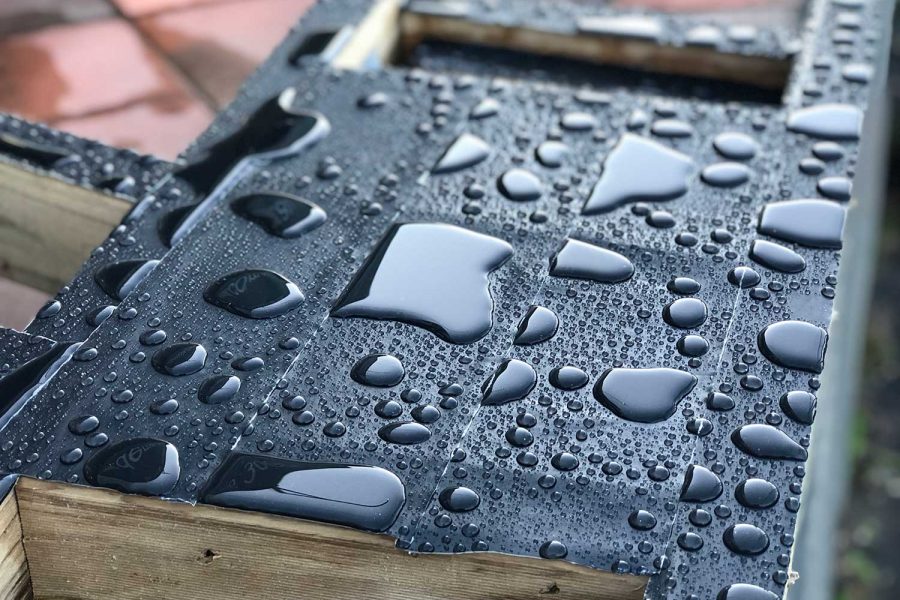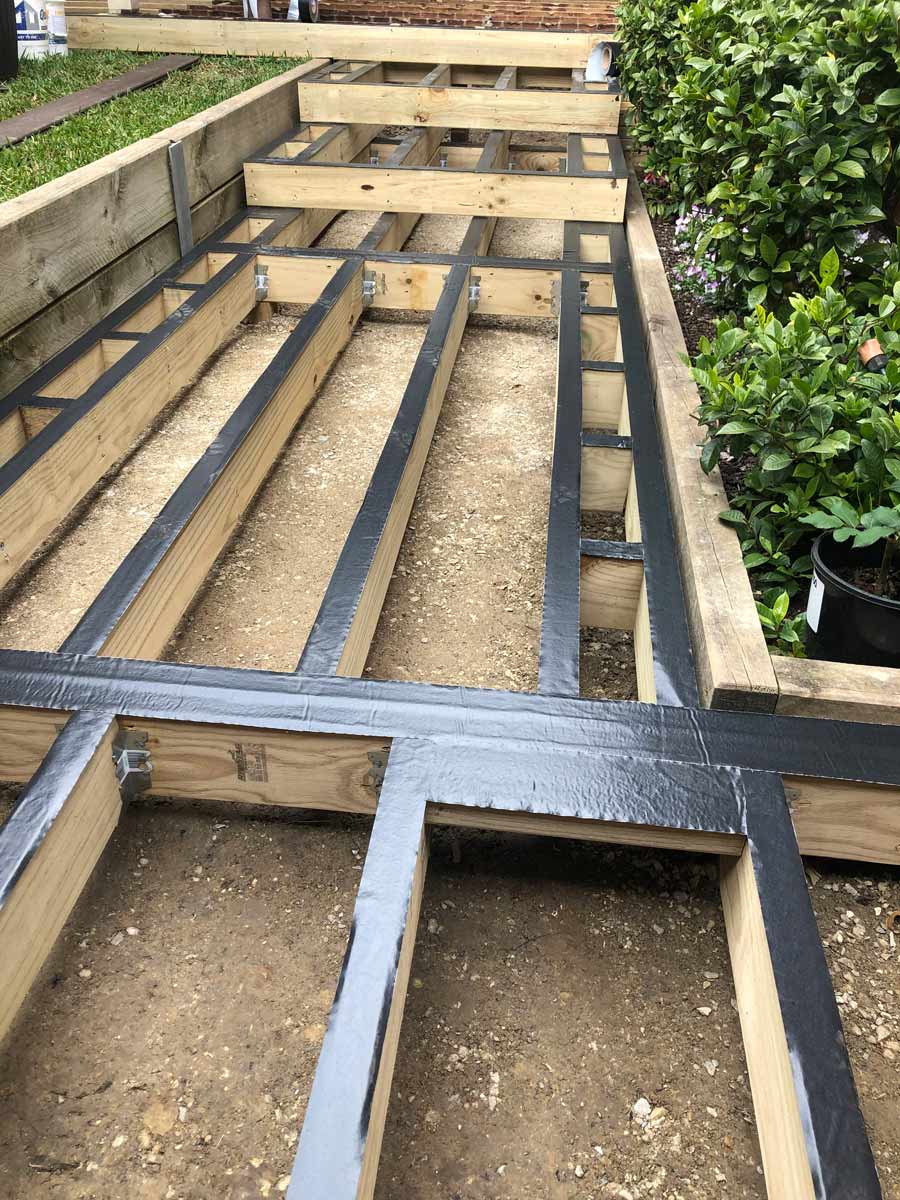Trex Protect Joist Tape: the smart choice

With the colder months fast approaching, it’s important to take steps to protect your deck from harsh weather conditions such as rain and wind. There are several ways to weatherproof your deck so that you can enjoy it for longer, including the application of joist tape.
Not everyone is familiar with joist tape, so read on to find out everything you need to know about this useful product.
What is joist tape used for?
Joist tape is an essential element in waterproofing the substructure of a deck. Whether a deck is made of Trex composite decking or traditional wood boards, its substructure will comprise timber – which is susceptible to the elements.
Unfortunately, water can seep between decking boards and ultimately stay around the joists – even with ACQ or pressure-treated timber – which can result in mould growth. Water can also get in between your ledger board, which supports and attaches the deck to your house.
It’s therefore vital to use joist tape, also known as flashing tape, which is durable, self-adhesive, and flexible, making it perfect for preventing rot and structural damage caused by rain and humidity. The formidable adhesive properties of joist tape provide a watertight seal, which keeps moisture and leakage away from your deck’s timber substructure.
Are there different types of joist tape?
There are three main types of joist tape: acrylic, butyl, and silicone. All of these are tough and can withstand a wide range of temperatures, but each has different characteristics.

Silicone tape is a strong protective tape made from silicone rubber and usually also contains silicone gel, helping it to bond with other surfaces. This adhesive tape has many uses and is a staple in the aviation industry as well as in marine manufacturing and the medical sector. It can withstand UV radiation, water, and various temperatures but does take longer to cure. It’s also important to note that this type of tape isn’t as long-lasting as some others.
Acrylic tape is another type of adhesive tape, which offers a number of benefits including its suitability for use for various weather conditions. It also has a layer of emulsion acrylic adhesive and another layer with BOPP (biaxially oriented polypropylene), meaning it easily adheres to many different surfaces. However, it takes more time to bond to some surfaces, especially those that are rough. Additionally, acrylic tape is more expensive than other tapes on the market.
Butyl tape is a top pick for installation on your deck’s substructure because it’s one of the most durable, flexible, and powerful flashing tapes. This tape, made from rubber components, has a high adhesion factor on many surfaces, cures quickly, and lasts for a long time. It works in wet climates and is effective throughout an extensive temperature range. Butyl tape has many uses, and what’s more, it’s not as expensive as alternatives.
Acrylic vs. butyl tape
So, how does butyl tape compare to acrylic tape?
Some brands claim that butyl compounds cannot withstand extreme temperatures. However over the years, butyl tape has become one of the most hardwearing materials for waterproofing and protecting against harsh weather, making it superior to acrylic in many ways.
For example, acrylic tape takes longer to attach itself properly and hold – this process can take anywhere from 24 to 72 hours to fully cure. Furthermore, while both types of tape are waterproof, butyl consistently performs better than acrylic, plus you will spend less money on butyl tape in the long run.
Butyl tape and decking
Due to the UK’s rainy climate, moisture can become trapped between the board spacing, adversely affecting your deck’s support structure. The wet areas become mildewed and, over time, can rot, causing significant damage to your deck.

An easy fix – even for DIYers – is to apply joist tape to the timber to protect it from moisture. Installing butyl tape is not expensive and will add years of longevity – for added peace of mind, Trex Protect comes with a 25-year warranty.
Butyl tape expands to fit the fasteners, and when deck screws and screw holes penetrate the tape, butyl tape will self-seal, creating a watertight seal. What’s more, butyl tape’s super grip remains unparalleled compared to other types of flashing tape.
Trex Protect Joist Tape provides a stronghold for decking by bonding to surfaces quickly and reliably, performing well in a variety of climate conditions. Its ability to be malleable and make a vigorous seal gives this tape an incomparable edge for protecting decking so it can be enjoyed for many years, whatever the weather.






